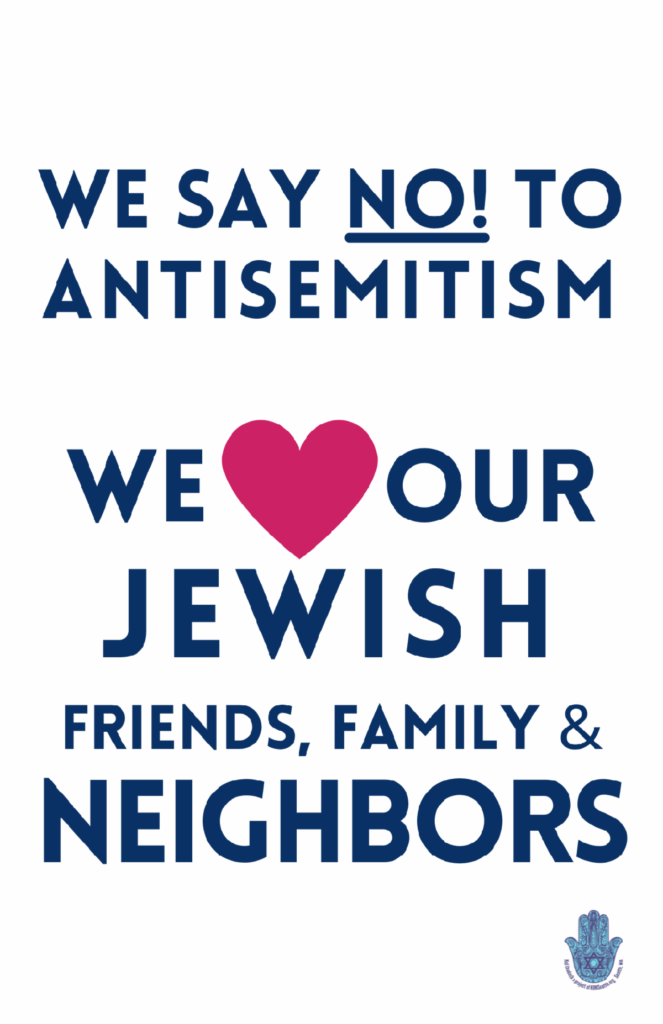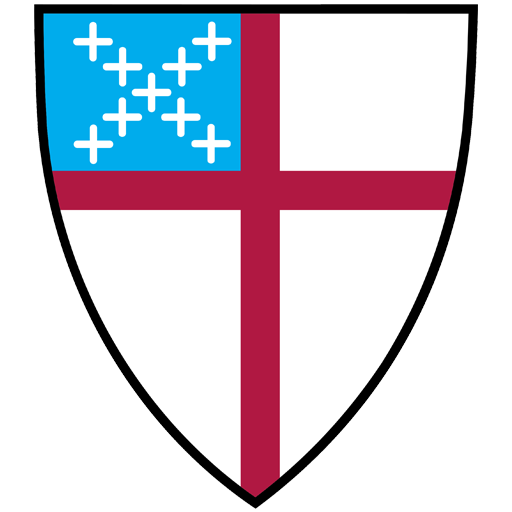by Father Jim Warnock

On April 16th, when we celebrated the Second Sunday of Easter, vandals attacked Temple De Hirsch Sinai, the largest Reform Jewish synagogue in Seattle. On the evening before Holocaust Remembrance Day, two men spray-painted several phrases and images, including “Ireal aas (sic) lied” and a Star of David, “apartheid” along with indecipherable words and a picture of a face with “Im (sic) still here” underneath. In a not terribly literate way, the point was made. It was an attack on the nation of Israel but done in such a way, in the courtyard of a synagogue, as to assault all Jewish people. That is anti-Semitism.
The Dean of our cathedral, the Very Rev. Steven L. Thomason, posted a letter of support for the Jewish people which Bishop Melissa Skelton sent to the diocesan clergy. It’s on our web page. It’s fine but we can’t leave things there. The Church, broadly defined, has a long, ugly, and unfortunate history of hatred of Jews. Some find the beginnings in John’s Gospel with its consistent portrayal of “the Jews” as opponents of Jesus. I think that misunderstands what amounted to an intra-Jewish debate, but the words nonetheless have been taken throughout the centuries as grounds for anti-Semitism. That is all too often vividly displayed in the writings of the Church Fathers who routinely accused Jews of being Christ-killers who bore ultimate responsibility for the death of Christ. That strain of thought has remained to one degree or another with the Church, producing animosity which all too often results in violence. In our own Diocese, Kresha and I recently argued at length with the Holy Land Committee over their resolution which, while it at least nominally supported Israel’s right to exist, condemned Israel for all of the tensions that have occurred since its founding in 1948. This one-sided view of a complicated issue certainly can be read as opposition to the very notion of a Jewish state. The Anti-Defamation League reports that anti-Semitic incidents, defined as assault, harassment, and vandalism, reached an all-time high in 2021.
This must stop, and we, as Christians, must help stop it. It begins with taking ownership of our Church’s past history of anti-Semitism, repenting of it, and vowing that it will never happen again. I was in Indiana when the Tree of Life Synagogue shooting happened. My parish had partnered with the REAL Community Church to work on racial reconciliation, and I was at a meeting there that morning. We had taken a break, and I saw the news of the murders on my phone. I was upset, and I left my table to go outside and call Kresha. We talked for a few minutes. When I returned, the room was entirely silent. Someone from my table had told Andrew Morrell, the pastor, and he had stopped the meeting and called the entire room to prayer, for those who died, the survivors, and the Jewish people. This was an incredibly powerful moment—Christians praying for Jews in a moment of crisis. When the meeting ended, I told Andrew that this was one moment in my life when I understood what he, as a young Black man, felt all of his life. Is there unity in suffering? I think so, and there is also unity in working together to end it.
Hatred of Jews is often the first step toward hatred of others. In this country, the process is underway. We serve a Savior who was all too aware of the reality of suffering, but who conquered evil with love. We need to act in his footsteps. For us, it begins with prayer, but we need to do more, to work actively to oppose anti-Semitism wherever we see it, to bring the love of God to those who hate.
